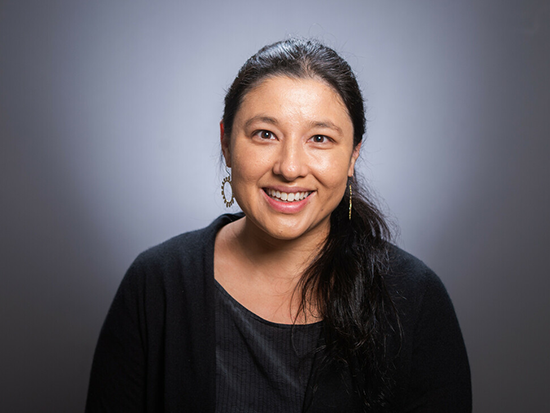 Emily Wong, M.D.,
Emily Wong, M.D.,
Photography by Lexi CoonEmily Wong, M.D., assistant professor with the University of Alabama at Birmingham Division of Infectious Diseases in the Marnix E. Heersink School of Medicine, was selected as a 2022 Investigator in the Pathogenesis of Infectious Disease award recipient from the Burroughs Welcome Fund.
“Congratulations to Dr. Wong on this amazing accomplishment,” said Alan Tita M.D., Ph.D., associate dean for Global and Women’s Health and director of the Mary Heersink Institute for Global Health. “This is a highly coveted award for infectious disease researchers, and we look forward to seeing the innovations that arise from this.”
The PATH program is highly competitive and provides $500,000 over a period of five years. The awards are intended to give recipients the freedom and flexibility to pursue new avenues of inquiry, stimulating higher-risk research projects that hold potential for significantly advancing understanding of how infectious diseases work and how health is maintained.
Wong received the award for her research, titled “Interactions between the human host and M.tb during subclinical tuberculosis.”
“This grant will allow my team and me to study subclinical, or asymptomatic, tuberculosis at a level of detail that has never been done before,” Wong said. “In our recent study, Vukuzazi, we identified over 150 people with subclinical TB. Now we will perform detailed investigations into both the organism and host immunological responses to test the idea that subclinical TB represents a potential ‘tipping point’ between the bacteria and the host. My work spans multiple scales from the population to the molecule so we will use a range of techniques to try to shine a bright light on this poorly understood aspect of TB.”
TB remains the leading infectious killer in the world. Wong and her team recently completed screening more than 18,000 people in rural South Africa for TB.
“We found that 1 percent of the population had undiagnosed TB, which is a very high number,” Wong said. “But what really blew my mind was that at least 80 percent of people with newly diagnosed, microbiologically proven TB had no symptoms. The classic paradigm is that people with TB are coughing, losing weight and having fevers; but our data and similar findings from around the world are calling this into question.”
Wong added that, if M.tb, the organism that causes TB, can be transmitted by people who have no symptoms, this may be the “missing piece of the puzzle” that explains why we have struggled to control the TB epidemic even though we have new diagnostic tools and effective antibiotic treatments.
